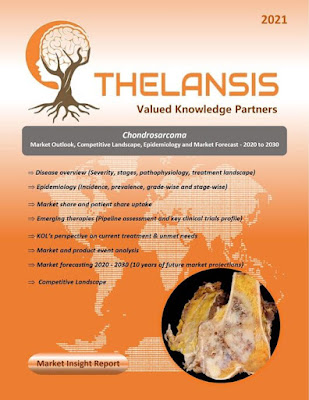Hemolytic-Uremic Syndrome (HUS) – Market Outlook, Epidemiology, Competitive Landscape, and Market Forecast Report – 2021 To 2032
Hemolytic-uremic syndrome (HUS) is a group of diseases characterized by the triad of nonimmune, microangiopathic hemolytic anaemia, thrombocytopenia, and decreased renal function. The first injury is to the endothelium (mainly renal), causing cell swelling and later detachment, leading to the formation of thrombocyte aggregates, microthrombi, mechanical hemolytic anemia, and organ dysfunction, mainly of the kidneys and brain. Different primary triggers cause the different types of Hemolytic-uremic syndrome (HUS). The pathophysiology underlying the initial endothelial damage is diverse, as are the various epidemiologies, disease course, recurrence risks, treatments, and prognoses. This leads to the pathological lesion termed thrombotic microangiopathy, which mainly affects the kidney and other organs. Although the underlying cause may differ, HUS is associated with endothelial cell injury and platelet activation. The majority of HUS is associated with gastrointestinal infection with Shiga toxin-producing enterohaemorrhagic Escherichia coli (EHEC) strains. Atypical HUS (aHUS) is associated with complement dysregulation due to mutations or autoantibodies.
·
The annual incidence of Hemolytic-uremic
syndrome (HUS) ranges from 2.5 to 5.7 per 100,000 population in the USA.
Thelansis’s “Hemolytic-Uremic Syndrome
(HUS) Market Outlook, Epidemiology, Competitive
Landscape, and Market Forecast Report – 2021 To 2032" covers disease
overview, epidemiology, drug utilization, prescription share analysis,
competitive landscape, clinical practice, regulatory landscape, patient share,
market uptake, market forecast, and key market insights under the potential Hemolytic-Uremic
Syndrome (HUS) treatment modalities options for eight major markets (USA,
Germany, France, Italy, Spain, UK, Japan, and China).
KOLs insights
of Hemolytic-Uremic Syndrome (HUS) across 8 MM market from the centre of
Excellence/ Public/ Private hospitals participated in the study. Insights
around current treatment landscape, epidemiology, clinical characteristics,
future treatment paradigm, and Unmet needs.
Hemolytic-Uremic Syndrome (HUS) Market Forecast Patient
Based Forecast Model (MS. Excel Based Automated Dashboard), which Data Inputs
with sourcing, Market Event, and Product Event, Country specific Forecast
Model, Market uptake and patient share uptake, Attribute Analysis, Analog
Analysis, Disease burden, and pricing scenario, Summary, and Insights.
Thelansis Competitive Intelligence (CI) practice
has been established based on a deep understanding of the pharma/biotech
business environment to provide an optimized support system to all levels of
the decision-making process. It enables business leaders in forward-thinking
and proactive decision-making. Thelansis supports scientific and commercial
teams in seamless CI support by creating an AI/ ML-based technology-driven
platform that manages the data flow from primary and secondary sources.
_page-0001.jpg)

Comments
Post a Comment